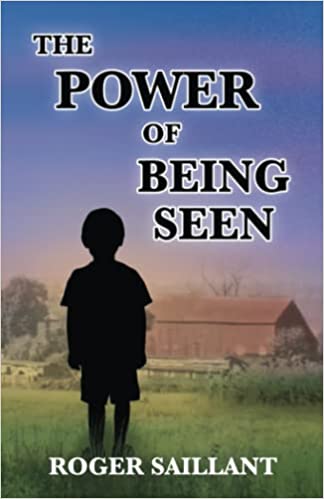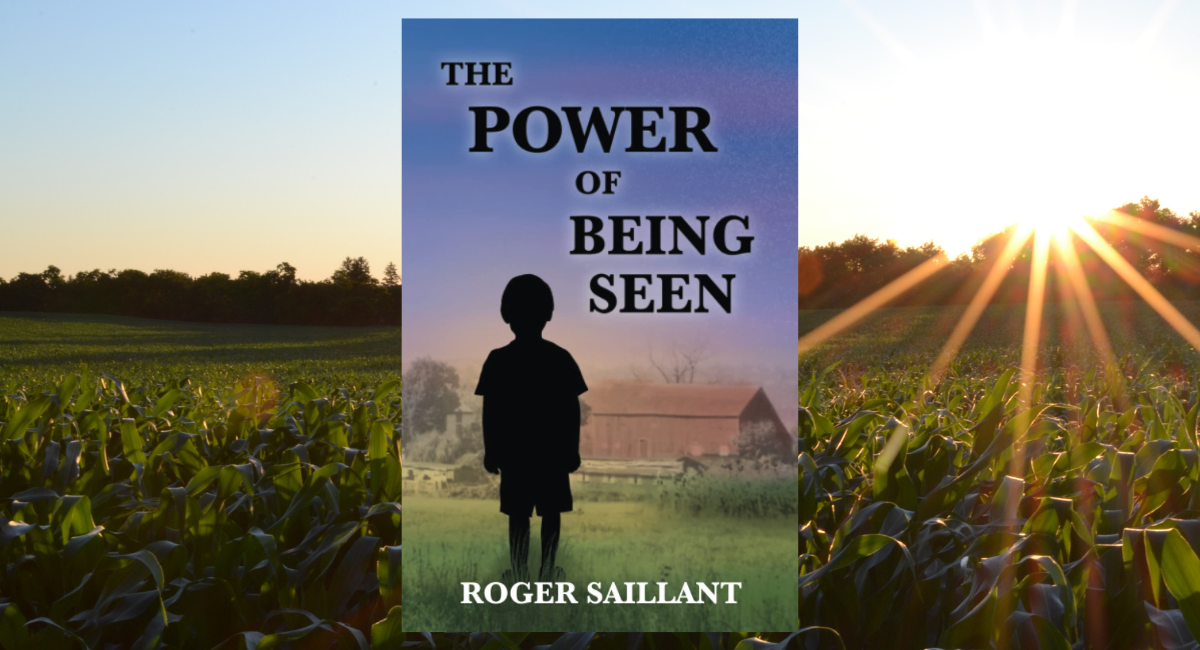The Power of Being Seen by Roger Saillant
Roger Saillant was particularly guarded about his emotions during his childhood. Throughout most of his memoir, The Power of Being Seen (Saratoga Springs Publishing LLC), about growing up in the foster care system, he holds back his feelings to outsiders by design based on the advice of his older foster brother.
But as adults, friends, social workers and teachers prod him unsuccessfully to open up, he finally reaches a point where he screams it to a probing therapist: “You know what makes me angry? All my life, people have told me where to live. What to do. How to do it. I’ve been taking care of myself for most of my life, and I don’t need total strangers peeking into my life and telling me what to do.”
Actually, maybe he does.
“His awareness of his peril as a child without a family and his reactions to this most literal of existential threats are at the core of this book,” writes Raymond Schimmer, retired CEO of Northern Rivers Family Services, in the book’s closing comments.
AN UNPARALLELED GLIMPSE INTO FOSTER CARE IN THE ’50s
Saillant spends much of the narrative recounting his experience of living in foster homes in Pennsylvania in the 1950s, starting when he was nine months old. Many of the stories, primarily under the guardianship of the McClelland family, describe various episodes of growing up on a farm – the life, the work, the relationships, and the usual trouble kids get into.
What is not described so carefully but what is ever present is that Roger is a product of the foster care system – an unusual dynamic in which basically a child provides unpaid labor to a family in exchange for room and board. The families may or may not take in the children to love and to cherish – even though they regularly ask to be called Mom and Dad – and if things don’t work out, they can be returned to the system, like sending a stray animal back into the woods.
And what are the chances for foster children? Statistically, at least, the deck appears to be stacked: Agencies report that about 40-50 percent of “aged-out” children (at the age of 18) become homeless within 18 months. Almost 50 percent of prison inmates have been in foster homes. Foster children suffer six times the rate of PTSD found in the general population.
AN EXCEPTION TO THE STATISTICS
Saillant is an exception – clearly, he is here to tell his story, supported with slices of goodness, knowledge, persistence and guidance from various adults along the way.
But it was hardly an easy journey. For the longest time, he never knew a life beyond constantly working on the farm with Mr. McClelland until chores were completed at the expense of everything else – barely able to participate in fun activities, playtime with friends, or try out for his school’s sports teams. He continually categorized himself as a bad person, a loser, a victim of fate with hardly any redeeming value, lying and making up stories so that others would think better of him.
At one point, Roger sticks a loaded gun in his mouth as the easiest solution. But something stops him from pulling the trigger. Perhaps, he wasn’t ready to throw away his life without exploring it further, holding out the smallest of hope that there’s something out there with meaning, relevance, importance and satisfaction.
One particular teacher, Mrs. Porter, hits the nail on the head for Roger: “As a foster child, you’ve had to learn to be less dependent on relationships… But you are wrong to think that you don’t need others in your life to be happy and successful. Human beings are social animals, and we all need others.”
A HAND REACHING OUT
Saillant had reasons for putting his words to paper. “My aim is to tell stories that are sometimes humorous and sometimes sad, but always along a trajectory of growing up and learning how to get more out of life than had been circumstantially offered to me.”
And even though he doesn’t outwardly share his emotions throughout, you gather what he’s wondering: Why am I being moved from place to place? Doesn’t anybody want me? Did I do something wrong? What’s the matter with me? It’s a tough way to exist.
In telling his story calmly, succinctly and convincingly, Saillant allows readers to draw out his feelings of pain, anguish and uncertainty, even if Saillant doesn’t beat readers over their heads with them.
Raymond Schimmer notes, “The Power of Being Seen is never, though, only a book about growing up in foster care. It is as well, and perhaps chiefly, about the universal pain, challenge, and triumph of growth and development. A child’s individual circumstances are terribly important, but Roger’s memoir argues that they are not determinant. There are universal experiences that transcend circumstance, and Roger treats these beautifully. Children wonder if they are inherently good or bad, and many struggle with the question. Every adolescent is going to be drawn to the outside world, and many will return with questions about their own homes and the people in them.”
Notes Saillant, “Experiencing the stresses of being a foster child can have benefits in the way it prepares you for life, something which more conventional childhoods may not offer.” And the true support, guidance and encouragement he was shown by many caring adults can make all the difference in being heard – and being seen.
Perhaps that’s the greatest lesson the author can teach us.
About Roger Saillant:
Roger Saillant was a child of the foster care system for 18 years. Despite challenging childhood circumstances, he graduated from Bowdoin College and earned a Ph.D. at Indiana University. He worked for 30 years for The Ford Motor Company, became CEO of Plug Power, and ultimately was appointed an Executive Director and adjunct professor at Case Western Reserve University. He co-authored the environmental thriller, Vapor Trails, with RP Siegel and was one of several co-authors of the book, The Flourishing Enterprise. He lives in Saratoga Springs, NY, with his wife, Mary Lou, where he writes, consults and raises wildflowers.





